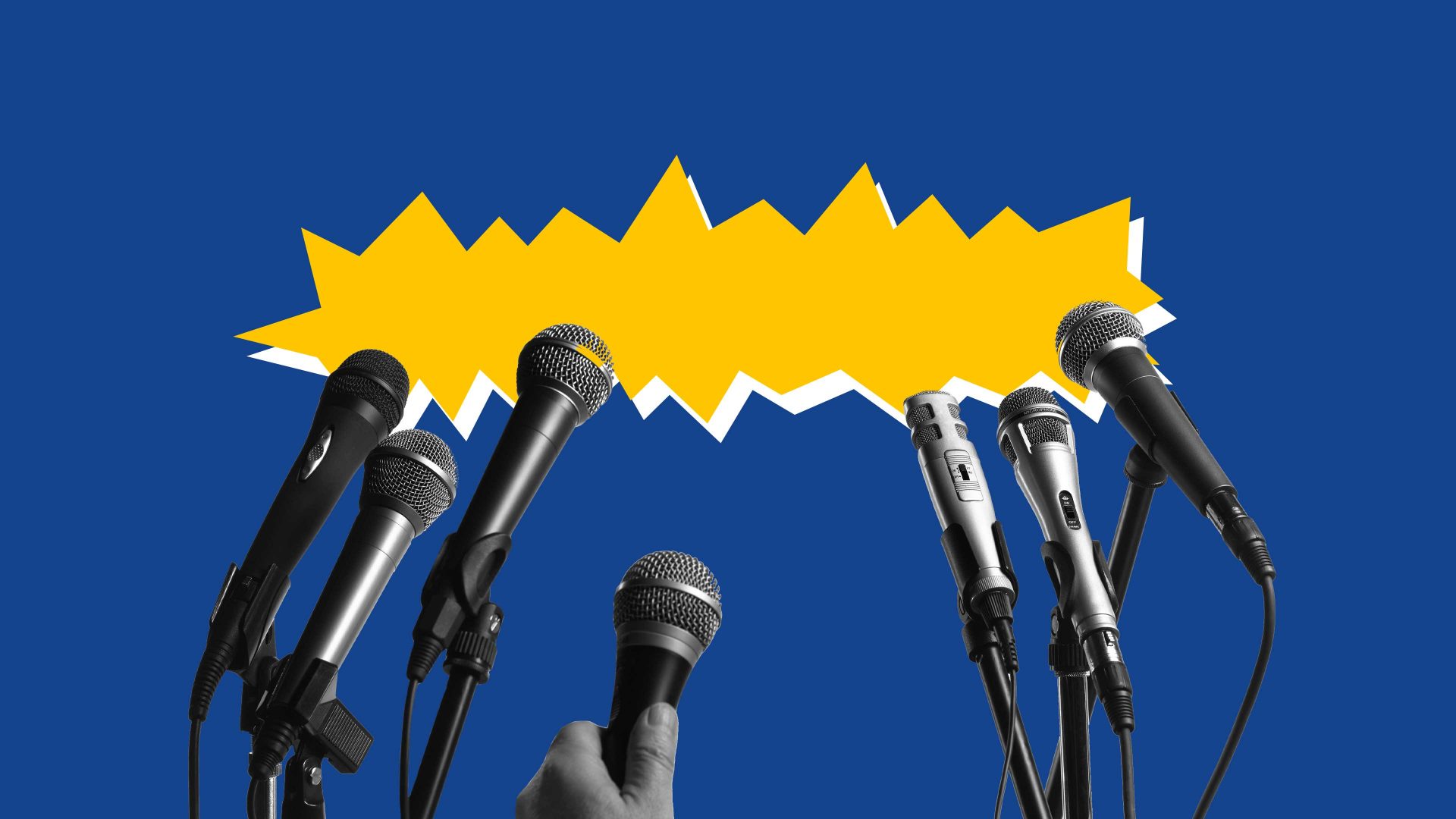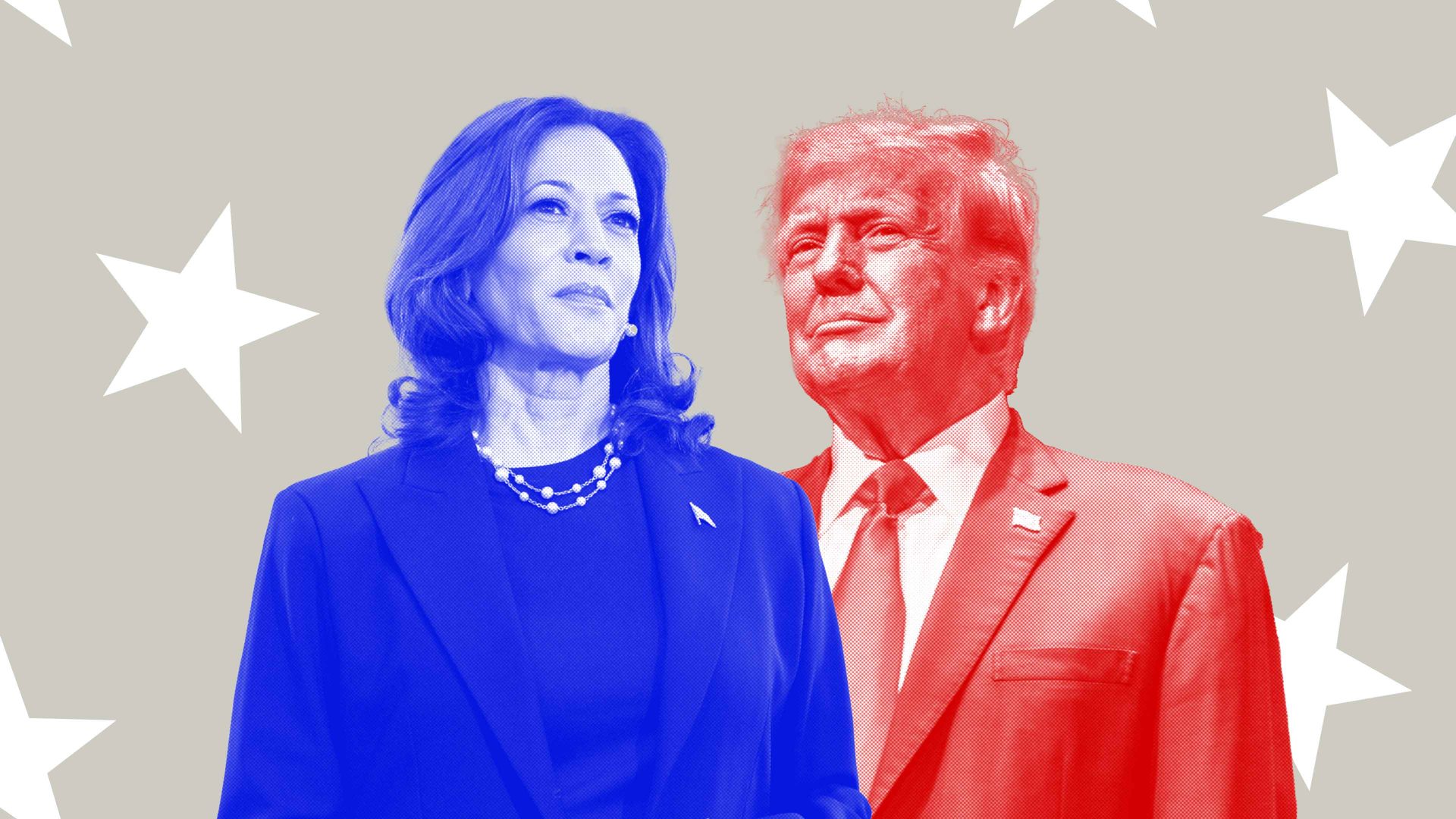The Democratic National Convention in Chicago last week was another remarkable plot beat in a presidential contest that has stormed through the crash barriers of expectation at warp speed. Little more than a month after Joe Biden’s announcement that he would not, after all, seek re-election, his party staged a near-flawless pageant of unity, purpose and urgency.
Of course, the very volatility that made this possible also represents the greatest peril to Kamala Harris. There will be many twists and turns before polling day on November 5 – the ABC News debate between Harris and Donald Trump on September 10, or the latter’s scheduled sentencing, eight days later, for his 34 felony convictions in the New York hush-money case.
And, though Harris’s position in the polls is stronger than Biden’s was in July, the race is still a toss-up, which could be clinched by a tiny number of votes in specific districts.
But what happened in Chicago was important. Though it resembled the Grammys more than a grand public policy debate, the convention represented a significant step forward in the global battle between nationalism and progressivism.
I hate the word “vibes” – a generational recoil, no doubt – but it does capture the Democrats’ belated recognition of a basic electoral truth that the MAGA right has long captured in the maxim “politics is downstream from culture”. What this means, in practice, is that identity, belief and changing social patterns shape voters’ response to the traditional variables of political science.
It baffled Biden that Americans were not more responsive to, and grateful for, economic recovery. But that was always to misunderstand the huge cultural distance that lies between the White House spreadsheet and the emotions felt by an insecure family in a swing state fretting about the cost of groceries and mounting medical bills.
Harris and her vice-presidential pick, Tim Walz, grasp that simply asserting success is not sufficient in the hypermodern context of social media, ceaseless technological change and angrily polarised public discourse. To earn a hearing, those running for office must first send a series of clear psychological signals and establish a basic framework for what they are offering.
This, needless to say, is incredibly hard. But – to give Harris her due – she identified her own framework within days of Biden’s withdrawal.
First, she presents herself as America’s prosecutor versus America’s felon, who, as she put in her speech last Thursday, seeks a return to the Oval Office “to serve the only client he has ever had: himself”.
Second, she stands for freedom versus tyranny. The Chicago convention reclaimed the traditions of American liberty aggressively from the right, deftly including under that rubric the reproductive rights that were demolished by the overturning of Roe v Wade. As Walz put it: “When Republicans use the word freedom, they mean that the government should be free to invade your doctor’s office. Corporations – free to pollute your air and water. And banks – free to take advantage of customers.”
Third, and most powerfully, Harris has written the most simple of mission statements: “We’re not going back”. Like most such messaging, it could prove an inert banality. But – packed with energy and sufficient policy substance – it could also be decisive.
The nine years since Trump announced his candidacy have been a bleak chapter in the history of the free world. It is more than sloganeering to call for a fresh start.
Into the mix, Walz has popularised the charge of “weirdness” levelled at the MAGA movement; conspicuously helped in this respect by the sheer creepiness of Trump’s running mate, JD Vance, who seems to have read The Handmaid’s Tale as a manual rather than a dystopian warning.
Meanwhile, Harris has already worked up the broad strokes of a centre-left economic populism that is much readier for retail presentation to the voters than Biden’s grand claims. Her straightforward emphasis on price-gouging, affordable housing, medical costs and tax-dodging corporations has been well-judged and, if the message is repeated a million times, stands a fair chance of connecting with a sceptical public.
The new Democratic campaign is not flawless. I am not sure how all the Hollywood glitz and insistence on “joy” will have landed in the rust belt states – or indeed anywhere where recovery still feels like a rumour. It’s a bad idea for well-dressed millionaires to tell people on the poverty line they should be having fun.
Barack Obama was absolutely right to warn last Tuesday that “too many Americans are still struggling… a lot of Americans don’t believe that government can help… who will fight for me?” Add to this the near-reckless audacity of an incumbent vice-president, representing a party that has held the presidency for almost 12 of the last 16 years, claiming to lead an insurgency. In strict logic, Harris is rebelling against herself.
But politics is not strictly logical. The success or failure of this strategy will depend upon her sheer kinetic energy and (no less important) Trump’s continued inability to settle on an effective counterattack.
“Sleepy Joe” was cruel but effective. Calling the new Democratic nominee a “communist” just makes Trump sound even more absurd than usual.
Harris’s path to the necessary 270 votes in the electoral college remains a rocky one. Her lead in many polls is still within the margin of error and last Thursday, Rasmussen Reports had Trump ahead by three points. There is still room in this extraordinary story for one last mindboggling twist that leads to Trump raising his hand to be sworn in on January 20.
It is all so brittle, so provisional. But consider the alternative. Were Biden still the nominee, the Democrats would rightly be bracing for a terrible defeat. Now, the race is properly competitive.
The Chicago convention was a laboratory of progressivism wrapped in the glamour of an awards ceremony. Whether the outcome is a triumphant success, or merely a bold prototype, the most important political project of our times is, at least, up and running.




